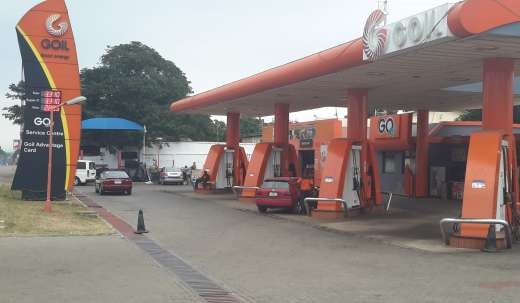
The growing number of fuel retail outlets
Until 2005, bulk oil distribution in the country was mainly the preserve of the state-owned Tema Oil Refinery (TOR). At that time, TOR refined enough products for retail to the oil marketing companies (OMCs), which were also a few in number.
Advertisement
Aside from the state-owned Ghana Oil Company (GOIL), a few OMCs such as Shell (now Vivo Energy) and TOTAL existed, making it difficult for customers to enjoy the benefits that plurality brings to business.
However, following the liberalisation of the downstream petroleum sector in 2005, many private-sector investors have taken advantage of the development to set up businesses and run fuel supply stations in the country.
As a result, the number of bulk oil distribution companies (BDCs) and OMCs had grown steadily.
The number of BDCs had risen from four in 2005 to 30 as of September last year. As for the OMCs, the number had increased to 185 as of December last year.
Although the strong growth is good for customers and the economy in general, it raises questions about the ability of the National Petroleum Authority (NPA) to effectively police the players in a manner that will prevent them from engaging in acts that will ultimately mar the successes chalked up in that sector.
While some people are of the view that the time has now come for the NPA to put a ceiling on licences, the authority says it does not intend doing that soon.
Given that the country now operates a truly deregulated downstream petroleum sector after phasing out fuel subsidies mid-last year, the NPA explains that it will be disingenuous to put a freeze on new entrants.
Much as the GRAPHIC BUSINESS shares in that position, we wish to emphasise that growth without proper regulation is disastrous.
We can cite recent happenings in the banking sector where the Bank of Ghana, after licensing many micro-finance institutions in the country, has not been able to supervise their activities, leaving innocent people at the mercy of some unscrupulous persons.
As a result, we advise that the authority should continue to assess its regulatory ambit and the resources at its disposal and the requirements for law enforcement vis-a-vis the number of companies in the sector.
This will help in determining the point at which the NPA and the country, for that matter, should put a ceiling on new entrants into the sector.
That assessment should also aim at finding innovative policy directions that will lure OMCs to the rural areas where only a few or none at all exists.
Thus, instead of granting licences to new entrants to operate in places of their preference, particularly the regional capitals, the NPA could grant geographically focused licences to companies, restricting them to areas that require the services of OMCs.
Until these are done, continued licensing of companies, although positive for now, could become a time bomb waiting to explode.



